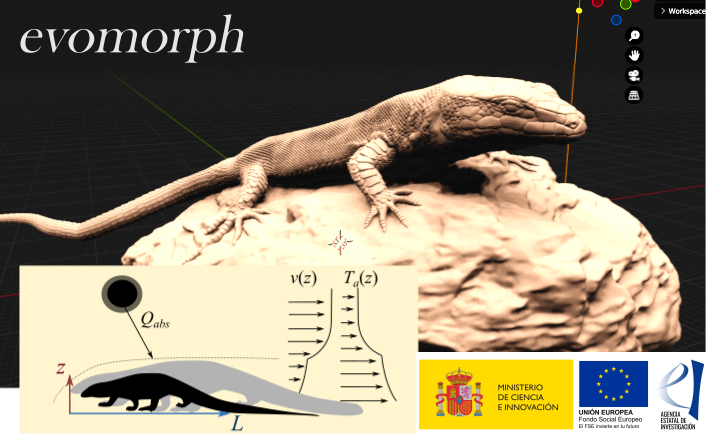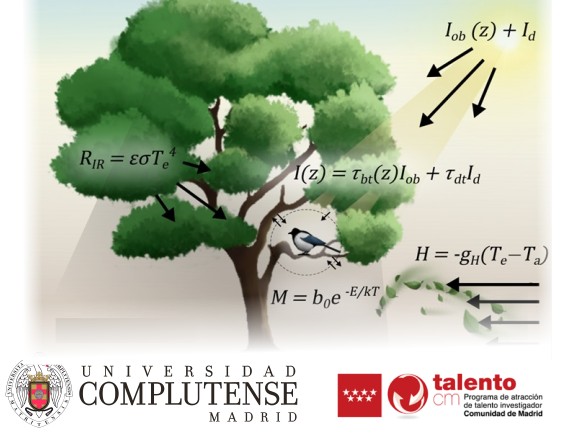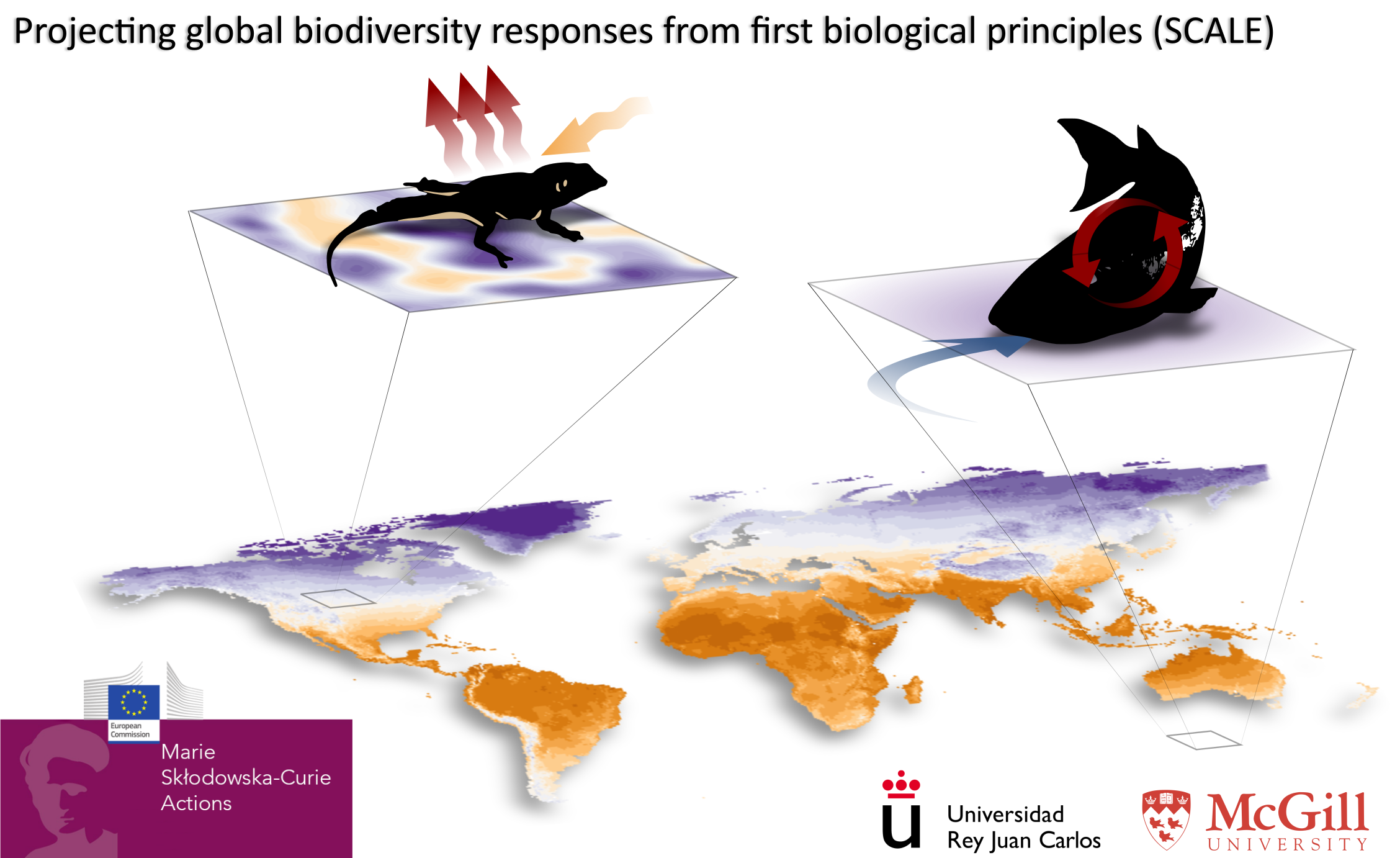My research explores how animals respond to environmental change, with a particular focus on how climate shapes physiology, behavior, and energy use. By studying how animals exchange heat, water, oxygen, and nutrients with their surroundings, I aim to understand where species can live, how they function, and how they may respond to ongoing climate change. I combine theoretical models with empirical data across a wide range of animal groups and ecosystems.
Biophysical constraints on the evolution of lizard morphology

Climate affects physiological performance and fitness of organisms - particularly ectotherms - modulating evolutionary adaptations of multiple traits involved in thermoregulation such as body size and shape, radiative properties of the skin, thermal physiology or behavior.
evomorph studies morphological adaptations of lizards to extreme environments. We perform 3D reconstructions of lizards combined with biophysical (heat-transfer) models to test how morpohlogy affects body temperature and thermoregulatory capacity. Ultimately, we are interested in the mechanisms driving morphological evolution of lizards and in developing accurate, mechanism-oriented forecasts of their responses to climate change.
Funding: Spanish National Research Agency (Proyectos de Generación de Conocimiento 2023, Agencia Estatal de Investigación). PID2023-148774NA-I00. 80k€ (2025-2028)
Assessing the energetic impacts of climate change on biodiversity

Climate warming challenges the capacity of organisms to balance heat and water budgets, affeting homostasis, survival, and overall fitness. In this project, we aim to quantify the impacts of warming on energy metabolism in both endotherms and ecotherms, across global climatic gradients.
The project combines field metabolic rates collected from the literature throughout more than three decades of field research and biophysical models, used to gain knowledge about the mechanisms underlying metabolic responses of animals to temperature fluctuations.
Funding: Talent Attraction Program for Senior Researchers 2022, Comunidad de Madrid (Spain). 2022-T1/AMB-23753. 180k€ (2023-2028)
Former projects

SCALE was a Marie-Curie funded project investigating how heat- and water-transfer mechanisms determine phenotypic traits of animals across global climatic gradients
Juan G. Rubalcaba (MSCA fellow Grant agreement ID: 843094); Jennifer Sunday (supervisor at McGill University, Montreal), Miguel Á. Ollala-Tárraga (supervisor at Rey Juan Carlos University, Madrid).